NSW Premier's History Awards
The NSW Premier's History Awards acknowledge the contribution of historical research to our culture and communities, and to society at large.
2024
Submissions closed
About the awards
The NSW Premier’s History Awards were first presented in 1997 to honour distinguished achievement in history by Australian citizens and permanent residents. The Awards acknowledge the contribution of historical research to our culture and communities, and to society at large.
Past winners have included Alan Atkinson, Joan Beaumont, Stuart Macintyre, Ken Inglis, Inga Clendinnen, Bruce Scates, Mark McKenna, Warwick Thornton, Sean Scalmer, Ann McGrath, Nadia Wheatley and Grace Karskens.
The NSW Premier’s History Awards are administered by the State Library of NSW in association with Create NSW. We are pleased to acknowledge the support of the History Council of NSW, and the Anzac Memorial Trustees for their establishment and sponsorship of The Anzac Memorial Trustees Military History Prize.
Anzac Memorial Trustees' Military History Prize
The Anzac Memorial Trustees Military History Prize ($10,000) is for a work of non-fiction on the involvement of Australians in wars, campaigns, battles and/or peacekeeping operations represented in the Anzac Memorial’s Hall of Service.
Australian History Prize
The Australian History Prize ($15,000) is for a major work of non-fiction on Australian history.
Digital History Prize
The Digital History Prize ($15,000) is for an Australian historian’s interpretation of an historical subject, using non-print media.
General History Prize
The General History Prize ($15,000) is for a major work of non-fiction on international history.
NSW Community and Regional History Prize
The New South Wales Community and Regional History Prize ($15,000) is for a major work of non-fiction that makes a significant contribution to understanding of any aspect of the history of New South Wales.
Young People's History Prize
The Young People’s History Prize ($15,000) is for a work that increases the understanding and appreciation of history by children and/or young adults.
- 2024 Judging Panel
-
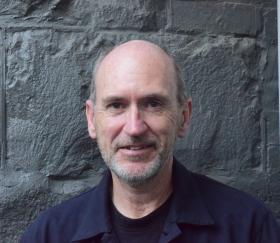
Professor David Lowe
Senior Judge
Prof. David Lowe holds a Chair in Contemporary History at Deakin University and is a fellow of the Academy of the Social Sciences in Australia. He is a historian of modern world history, including Australia's role therein and the remembering of conflicts and major transitions. He has written extensively about the Cold War, decolonisation, culture and foreign policy, Australian embassies overseas and the history of foreign aid. His next book is on the Colombo Plan for aid to South and Southeast Asia, and the idea of development internationalism. Professor Lowe is joint editor of the Routledge series, Remembering the Modern World, and Director of Deakin's Centre for Contemporary Histories.
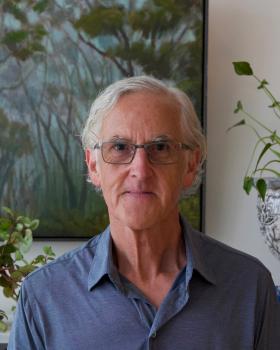
Professor David Blaazer
Prof. David Blaazer is an historian of modern Britain and Ireland. His early research was on the non-communist left in Britain and resulted in the publication of The Popular Front and The Progressive Tradition: socialists, liberals and the quest for unity, 1884-1939 (Cambridge: Cambridge University Press, 1992) and a number of articles on the history of Guild Socialism. He has also published on the Northern Ireland conflict, and on the historiography of globalisation. His more recent work is on the history of money in Britain and Ireland. His book, Forging Nations: Currency, Nationality and Power in Britain and Ireland 1603-1931, appeared with OUP in July 2023. He is now working on the rise and fall of Social Democracy in the UK, especially in relation to monetary ideas and financial markets.
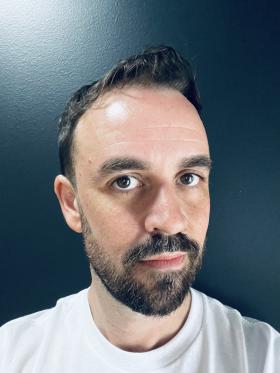
Dr James Findlay
Dr James Findlay is an Associate Lecturer in the discipline of history at The University of Sydney. He teaches Australian history and researches historical film and television studies, convict history, Australian popular culture, and public history. He has been an Australian Film Institute Research Collection Fellow, was the Archival Project Manager for the Society of Australian Genealogists, and has worked extensively in film and television production, mostly in the field of documentary.
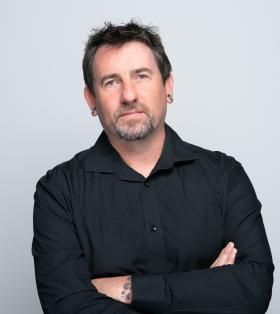
Professor Matthew Ftizpatrick
Prof. Matthew Fitzpatrick specialises in international history, in particular German and European history, as well as the history of European imperialism, German liberalism and nationalism. He is also interested in the comparative history of empires, and intellectual history. He is a current holder of an Australian Research Council Future Fellowship and his most recent monographs are The Kaiser and the Colonies: Monarchy in the Age of Empire and Purging the Empire: Mass Expulsions in Germany, 1871-1914.
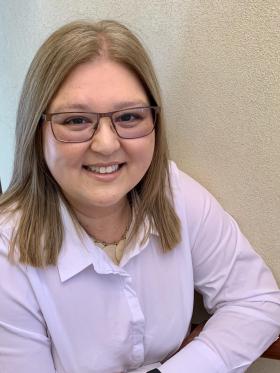
Associate Professor Shino Konishi
Associate Prof. Shino Konishi is an Aboriginal historian and descends from the Yawuru people of Broome, Western Australia. She is an associate professor in both the School of Humanities and School of Indigenous Studies at the University of Western Australia, and specialises in Aboriginal history, histories of colonialism, and Indigenous biography. Her publications include The Aboriginal Male in the Enlightenment World (2012) and, with Ann Curthoys and Alexandra Ludewig, The Lives and Legacies of a Carceral Island: A Biographical History of Wadjemup/Rottnest Island (2022).
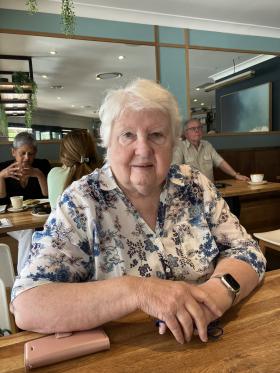
Associate Professor Carol Liston AO
Associate Prof. Carol Liston AO is an Adjunct Associate Professor at Western Sydney University. Her research covers early colonial history in New South Wales, with interests in people (convict, colonial born and free immigrant), local history, heritage and the built environment. Her particular interest is the colonial development of the County of Cumberland. Her publications include histories of Campbelltown, Parramatta and Liverpool, biographies of Sarah Wentworth, Thomas Brisbane and accounts of social life under Governor Macquarie and the convict women at the Female Factory, Parramatta. Her current research, with Dr Kathrine Reynolds, looks at women transported to New South Wales from Britain.

Dr Leah Lui-Chivizhe
Dr Leah Lui-Chivizhe was born and raised on the Queensland mainland, and has enduring family connections to the Mer, Erub, Badu and Mabuiag islands of Torres Strait. Leah is Scientia Senior Lecturer in the School of Humanities & Languages, University of New South Wales. Her extensive work with Aboriginal and Islander people and communities since the late 1980s has included collaborations with Indigenous Communities, NGO’s, and Government on various bodies of work, including cultural heritage mapping, program development and teaching. She lectured in Indigenous Studies at the University of Sydney (2001-2012) and UNSW (2013-2017), began doctoral studies at Sydney in 2012 and was awarded a PhD in history in September 2017. With a geographic focus on Oceania and the Torres Strait more specifically, her current research interests are in histories of settler colonialism and indigenous resistance, decolonisation of museum collections and practices and Islander histories of human and more-than-human interactions. Her current projects include “Reclaiming Turtles all the Way Down” with the Max Planck Institute, Berlin (MPIWG), and "Indigenous futures" with the LMU Munich project, “Indigeneities in the 21st century”. A historian and curator, she is also an Honorary Associate to the Chau Chak Wing Museum with the University of Sydney, a member of the Editorial Board of the Journal of Pacific History at the Australian National University, and the First Nations member on the General Council for the History Council of New South Wales.
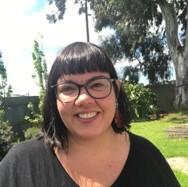
Dr Crystal McKinnon
Dr Crystal McKinnon is an Amangu Yamatji academic, researcher and community organiser. She is a historian and a critical Indigenous studies scholar. Her research work has looked at concepts of Indigenous sovereignty, justice and law, and Indigenous social movements, resistance and protest. Dr McKinnon is the co-editor of Aboriginal History Journal, and of History, Power and Text: Cultural Studies and Indigenous Studies (UTS ePress, 2014), and her work has been published in many books and journals, the most recent including Routledge Handbook of Critical Indigenous Studies (2020), Cambridge Legal History of Australia (2021), Biography, and Australian Feminist Law Journal.
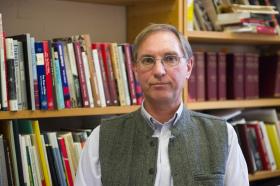
Professor Peter Stanley
Military History Prize Judge
Prof. Peter Stanley of UNSW Canberra is one of Australia’s most active and distinguished military historians. He was Principal Historian at the Australian War Memorial, where he worked from 1980 to 2007, and headed the Research Centre at the National Museum of Australia from 2007 to 2013. He joined UNSW Canberra’s School of Humanities and Social Sciences in 2013 as Research Professor, and in February 2023 retired to become Hon. Prof. at the same institution. Peter has published over 45 books, most in the field of Australian military history. They include The Remote Garrison (1986), Tarakan: an Australian Tragedy (1997), Quinn’s Post, Anzac, Gallipoli (2005), Invading Australia (2008), Men of Mont St Quentin (2009), Lost Boys of Anzac (2014), The Crying Years (2017). His Bad Characters (2010) jointly won the Prime Minister’s Prize for Australian History in 2011. Peter has also published on battlefield research (A Stout Pair of Boots, 2008), medical history (For Fear of Pain, 2003) and bushfire (Black Saturday at Steels Creek, 2013), and has published four books on the military history of British India and writes historical novels, including Simpson’s Donkey (2011). He is a frequent contributor to media programs on Australian military history.
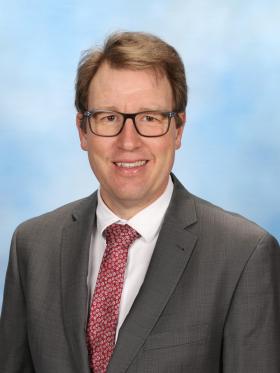
Dr Michael Molkentin
Military History Prize Judge
Dr Michael Molkentin has a PhD in History from UNSW Canberra. The Australian War Memorial awarded his doctoral research the 2013-14 Bryan Gandevia Prize for Military-Medical History which was published in 2014 as Australia and the War in the Air as part of the Oxford Centenary History of Australia and the Great War. An experienced secondary school History teacher, Michael is currently the Coordinator of Learning and Assessment at Shellharbour Anglican College and an adjunct lecturer at UNSW Canberra. He has written numerous articles and four books on Australian military and aviation history, the most recent of which is Anzac and Aviator: the remarkable story of Sir Ross Smith and the 1919 England to Australia air race. Michael's current book project, under contract with Allen & Unwin, is titled Southern Cloud: the tragedy and mystery of the world's first missing airline.
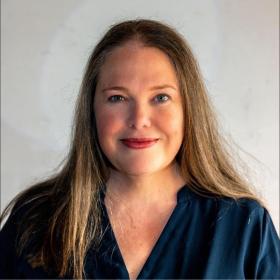
Miesje de Vogel
Military History Prize Judge
Miesje de Vogel is the Senior Historian for the Royal Australian Navy. Before joining the Sea Power Centre - Australia as the Head of Navy History and Heritage, she worked for the Australian Army History Unit as a historian and publications manager for the Australian Army History Unit. She was a researcher for three Official History series, and is a co-author of The Limits of Peacekeeping (2018). Her key areas of interest include peacekeeping, modern and contemporary operations, and Second World War economics, trade and finance.
Award Information
Entries to the 2024 NSW Premier's History Awards have now closed.
The shortlists will be announced in August 2024, and the winners will be announced in September 2024.
The total prize money in 2024 is $85,000.
For more information, please contact the Awards team.
Phone: (02) 9273 1767, or alternatively (02) 9273 1770.